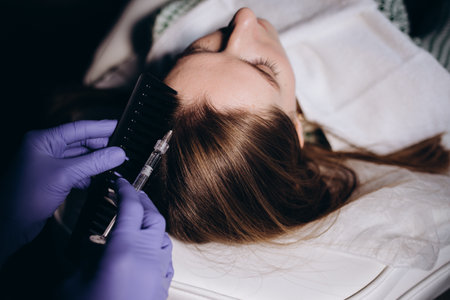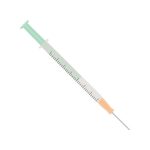1. The Science Behind Beauty Sleep
Ever heard the phrase “beauty sleep”? It’s not just a saying—there’s real science behind it. While youre catching some Zs, your body is hard at work repairing and renewing itself, especially your skin. During sleep, your skin goes through key processes that help restore its natural glow, firmness, and resilience.
What Happens to Your Skin While You Sleep?
At night, your skin switches from defense mode to repair mode. Heres a breakdown of what happens during the different stages of sleep:
| Sleep Stage | Skin Activity |
|---|---|
| Light Sleep (Stage 1 & 2) | Body starts to relax; blood flow increases to the skin, helping deliver nutrients and oxygen. |
| Deep Sleep (Stage 3) | This is when most skin cell regeneration occurs; collagen production ramps up, repairing daily damage from UV rays and pollution. |
| REM Sleep | The brain is active, but so is hormonal regulation—cortisol levels drop while melatonin rises, both of which impact skin health. |
Key Biological Processes That Support Skin Health
During quality sleep, several important biological activities contribute to healthy-looking skin:
- Increased Collagen Production: Collagen helps keep your skin firm and reduces fine lines.
- Improved Blood Circulation: Better circulation delivers vital nutrients to skin cells.
- Hormonal Balance: Lower cortisol (stress hormone) levels reduce inflammation and breakouts.
- Cell Turnover: Old cells are replaced with new ones, giving you that fresh morning glow.
The Role of Melatonin and Growth Hormone
Your body produces more melatonin at night, which acts as an antioxidant to fight free radical damage. Plus, growth hormone—released mostly during deep sleep—boosts tissue repair and regeneration.
Quick Tip:
Aim for 7-9 hours of quality sleep each night to give your skin enough time to go through these restorative cycles. Keep your room dark and cool for better melatonin production and deeper sleep.
Understanding the science behind beauty sleep can help you make smarter choices for your skincare routine—and it all starts with a good night’s rest.
2. How Poor Sleep Affects Your Skin
Getting enough quality sleep is more than just a way to feel refreshed in the morning—it plays a critical role in how your skin looks and feels. When you don’t get enough rest, your body misses out on essential repair processes that happen overnight. This can lead to several noticeable skin issues, including premature aging, dryness, and increased inflammation.
Signs of Sleep Deprivation on Your Skin
Your skin is often the first place to show signs that youre not getting enough sleep. Here are some common effects:
| Skin Concern | How Its Linked to Poor Sleep |
|---|---|
| Fine Lines & Wrinkles | Lack of sleep reduces collagen production, which keeps skin firm and smooth. |
| Dull Complexion | Poor circulation during sleep loss leads to a tired, lackluster appearance. |
| Puffy Eyes & Dark Circles | Fluid retention and poor blood flow make eyes look swollen and discolored. |
| Dehydrated Skin | Sleep helps balance hydration levels; without it, skin may become dry and flaky. |
| Increased Breakouts | Inflammation and hormonal imbalances from lack of sleep can trigger acne. |
The Science Behind It
While you sleep, your body enters repair mode. This includes increased blood flow to the skin and the release of growth hormones that support cell turnover. Without enough rest, these natural healing processes are disrupted. That means your skin doesn’t have the time or resources it needs to recover from daily stressors like sun exposure, pollution, or even makeup use.
Cortisol: The Stress Hormone That Hurts Your Skin
When you’re sleep-deprived, your cortisol levels go up. Cortisol is a stress hormone that can break down collagen and trigger inflammation—both of which lead to visible skin problems. Chronic high cortisol levels can also weaken your skin’s protective barrier, making it more prone to irritation and sensitivity.
Quick Tip:
If youre struggling with restless nights, try creating a bedtime routine that includes winding down without screens at least an hour before bed. Also consider using a silk pillowcase—it’s gentle on the skin and helps reduce friction that could contribute to wrinkles over time.
Your skin does a lot of its heavy lifting while you sleep. Missing out on those precious hours means missing out on vital recovery time your skin needs to stay healthy and glowing.

3. Best Sleep Habits for Optimal Skin Recovery
Getting enough quality sleep isn’t just about feeling well-rested — it plays a crucial role in how your skin heals, renews, and glows. While you sleep, your body goes into repair mode, producing collagen and increasing blood flow to the skin. Adopting healthy sleep habits can significantly improve your skin’s ability to recover from daily stressors like sun exposure, pollution, and inflammation.
Maintain a Consistent Sleep Schedule
One of the most effective ways to support your skins recovery overnight is by going to bed and waking up at the same time every day — yes, even on weekends. This helps regulate your body’s internal clock (circadian rhythm), which influences hormone production, including melatonin and cortisol, both of which affect skin health. Aim for 7–9 hours of uninterrupted sleep each night to give your skin enough time to repair itself.
Optimize Your Sleeping Environment
Your bedroom should be a sanctuary for rest. A calm, comfortable environment can drastically improve the quality of your sleep and, in turn, enhance skin rejuvenation. Here are some tips to create an ideal sleep setting:
| Factor | Recommendation |
|---|---|
| Room Temperature | Keep it cool — around 60-67°F (15-19°C) is ideal. |
| Lighting | Use blackout curtains or an eye mask to block out light. |
| Bedding | Choose breathable, soft fabrics like cotton or bamboo. |
| Noise Level | Use white noise machines or earplugs to minimize disturbances. |
| Air Quality | Consider using a humidifier or air purifier to keep skin hydrated and reduce allergens. |
Avoid Common Sleep Disruptors
Certain habits can interfere with your ability to fall asleep or stay asleep. These disruptions can limit how much time your body spends in deep sleep stages — the most restorative phases for your skin. Try to avoid:
- Caffeine: Stop drinking coffee or energy drinks at least 6 hours before bedtime.
- Blue Light: Limit screen time from phones, tablets, and TVs at least an hour before bed; use blue light filters if needed.
- Heavy Meals: Avoid eating large meals within two hours of going to bed to prevent indigestion and discomfort.
- Alcohol: While it may make you sleepy initially, alcohol reduces sleep quality and disrupts REM cycles.
The Bottom Line on Better Sleep for Skin Health
Your nighttime routine should go beyond skincare products — it starts with how well you sleep. By staying consistent with your schedule, creating a restful space, and cutting out sleep disruptors, you’re giving your skin the best chance to recover and glow naturally by morning.
4. Skincare Routine to Maximize Overnight Repair
While sleep is a powerful time for your body to heal, your skin also works overtime at night to repair and regenerate. That’s why having the right nighttime skincare routine can make a huge difference in how refreshed and glowing your skin looks by morning. To support your skin’s natural overnight healing process, it’s important to choose ingredients that boost cell turnover, hydrate deeply, and strengthen the skin barrier.
Key Nighttime Skincare Ingredients
Certain ingredients are especially effective when used at night because they work in sync with your body’s natural rhythms. Here’s a quick breakdown of some top-performing ingredients:
| Ingredient | Benefits | Why Its Best at Night |
|---|---|---|
| Retinol | Boosts collagen, reduces fine lines, improves texture | Increases cell turnover while you sleep; best used away from sunlight |
| Peptides | Supports collagen production and improves skin elasticity | Aids in repairing skin overnight when regeneration is most active |
| Hyaluronic Acid | Deeply hydrates and plumps the skin | Binds moisture while you rest, preventing overnight dehydration |
| Ceramides | Strengthens the skin barrier and locks in moisture | Helps restore protective layers weakened during the day |
| Niacinamide (Vitamin B3) | Evens skin tone, reduces redness, enhances barrier function | Soothes stressed skin and supports recovery overnight |
Suggested Nighttime Skincare Routine
A consistent evening routine doesn’t need to be complicated. The goal is to cleanse gently, treat with targeted ingredients, then seal in moisture so your skin can do its job while you sleep. Heres a simple step-by-step plan:
- Cleanser: Use a gentle cleanser to remove makeup, dirt, and oil without stripping the skin.
- Toner (optional): Choose a hydrating toner to prep your skin for treatments.
- Treatment Serum: Apply serums with retinol or peptides based on your skin needs.
- Moisurizer: Use a rich moisturizer containing hyaluronic acid or ceramides.
- Eye Cream: Apply an eye cream with peptides or niacinamide to reduce puffiness and fine lines.
- Sleeper Mask (1-2x/week): For extra hydration, use an overnight mask formulated with nourishing ingredients.
Tips for Better Results
- If youre new to retinol, start slowly—use it 2-3 times per week and increase as tolerated.
- Avoid using strong exfoliants and retinol together to prevent irritation.
- Your pillowcase matters! Try switching to silk or satin pillowcases to reduce friction on the skin overnight.
- A humidifier in your bedroom can help maintain moisture levels during sleep, especially in dry climates or winter months.
The right nighttime skincare routine helps make the most of your body’s natural repair system. By choosing products packed with proven ingredients like retinol, peptides, and hydration boosters, you’ll wake up each morning with healthier-looking skin that feels refreshed and renewed.
5. Lifestyle Choices That Support Restful Sleep
Your daily habits play a big role in how well you sleep—and that sleep directly affects your skins ability to heal and glow. Lets look at four key lifestyle factors that can help promote better rest and improve your skin health: diet, hydration, stress management, and exercise.
Eat Smart for Better Sleep and Skin
What you eat throughout the day can either support or sabotage your sleep. A balanced diet rich in vitamins, minerals, and antioxidants helps your body relax at night and gives your skin the nutrients it needs to recover.
Foods That Help You Sleep and Heal
| Food | Benefit |
|---|---|
| Almonds | Rich in magnesium, which promotes better sleep quality |
| Kiwi | Packed with antioxidants and serotonin for restful sleep |
| Salmon | High in omega-3s, reduces inflammation and supports skin repair |
| Whole grains | Help regulate blood sugar and promote serotonin production |
Stay Hydrated All Day Long
Your skin loses water while you sleep. Staying hydrated during the day helps keep skin plump and supports overnight cell turnover. Aim for at least 8 cups (64 oz) of water daily, more if youre active or live in a dry climate.
Tame Stress to Sleep Soundly
High stress levels release cortisol, a hormone that can disrupt your sleep cycle and cause breakouts or dull skin. Try incorporating simple stress-reducing activities into your routine:
- Meditation: Just 10 minutes before bed can calm your mind.
- Aromatherapy: Lavender essential oil can promote relaxation.
- No screens before bed: Blue light from phones and TVs can interfere with melatonin production.
Move Your Body Daily
A consistent exercise routine doesn’t just help you fall asleep faster—it also improves circulation, delivering oxygen and nutrients to your skin. Aim for at least 30 minutes of moderate activity most days of the week.
Quick Tip:
If you work out late in the evening, give yourself at least two hours to wind down before going to bed so adrenaline levels have time to drop.
By making these small but meaningful lifestyle changes, you’re not only supporting deeper, more restorative sleep—you’re also giving your skin the best chance to renew itself naturally each night.

